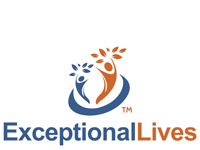Computer-Generated Instrumental Accompaniment
The North Cambridge Family Opera Company uses computers and electronic instruments (synthesizers and samplers) to create instrumental accompaniments for our operas. Samplers can be programmed to sound remarkably like the acoustic instruments for which the operas are scored. We write the instrumental score as a MIDI sequence, a list of commands from a computer which instruct a synthesizer or sampler exactly when and how to play each note (pitch, duration, volume, timbre, vibrato, etc.). After painstakingly editing the MIDI until the orchestration, phrasing, dynamics and tempi are just right, we then play the sequence using a Kurzweil sampler to produce very nearly lifelike audio, from which we burn CDs for our rehearsals and performances. This approach has both advantages and disadvantages. The biggest disadvantage is that the singers must follow the "orchestra", rather than the other way around, so some spontaneity is lost. Also, as impressive as computers and software are these days, it is never possible to make a computer-generated orchestra sound quite as good as real professional players. However, we believe that for an amateur, community-based group like ours, the disadvantages of computer-generated instrumental accompaniments are outweighed by the advantages, which include:
- Flexibility - you can perform anywhere you can bring a CD player.
- Simplicity - scheduling rehearsals for the singers is chaotic enough without having to worry about an orchestra or a rehearsal pianist.
- Cost - professional instrumentalists add significantly to the cost of an operating production, and you can save on hall rental if you are not restricted to venues with a pit for the orchestra.
- Versatility - in a single show, the cast can have the opportunity to perform against a wide range of accompaniment styles and orchestrations, ranging from jazz ensemble to rock band to symphony orchestra.
- Reliability - a computer-generated orchestra never rushes, drags, or makes mistakes.
- Sound Quality - it may not be the Boston Symphony, but a computer-generated orchestra will sound better than any live instrumentalists a group like ours actually will be able to find or afford.
- Adaptability - by editing the MIDI, each number can be easily played in any key, at any tempo, and with any expression to accommodate the interpretation and vocal range of each individual performer.
- Reproducibility - the computer-generated accompaniment is always the same, always just the way the composer envisioned it. Singers always know exactly what to expect from the invariant accompaniment (having rehearsed with it), and so do not find following a CD in performance to be difficult.
- Transportability - once we've made an accompaniment CD for our production, little effort is required to adapt it for use by other small opera companies.
»



